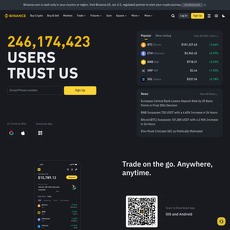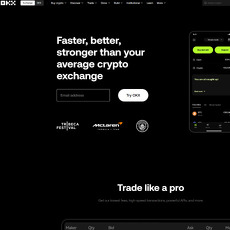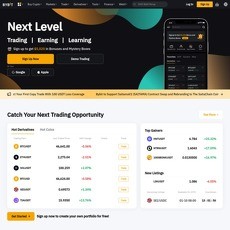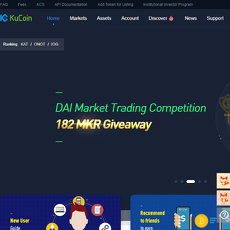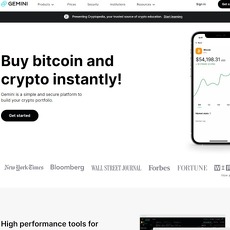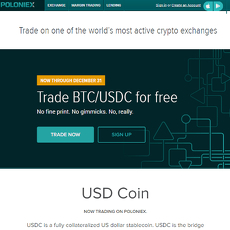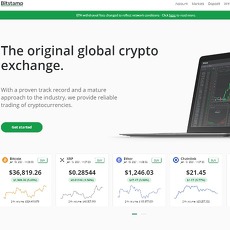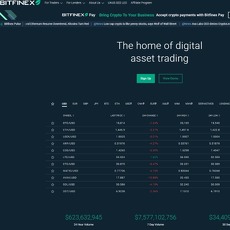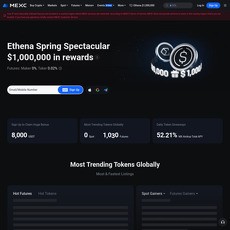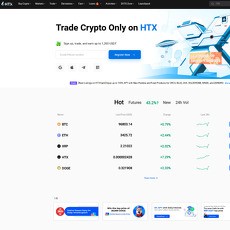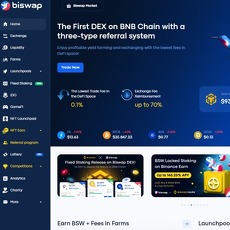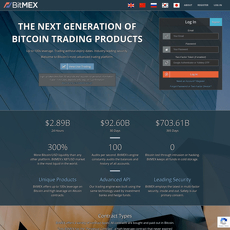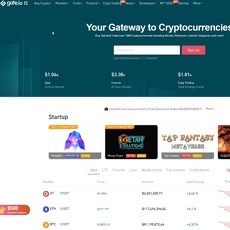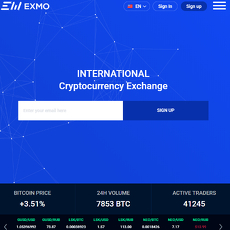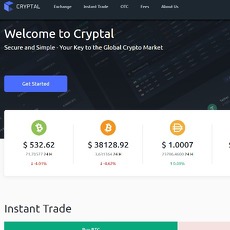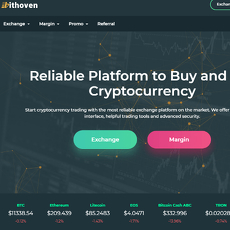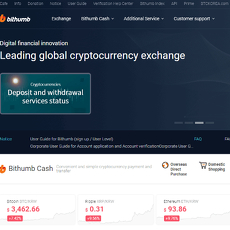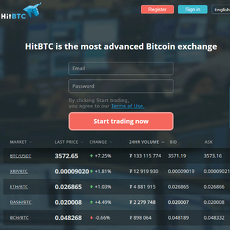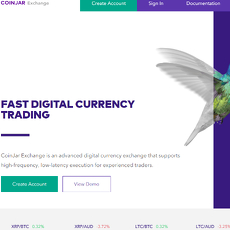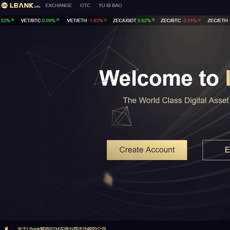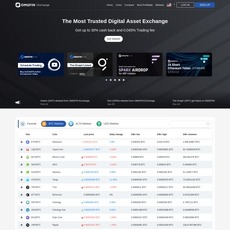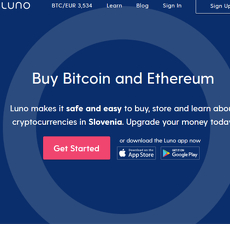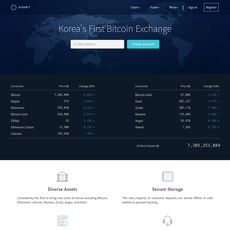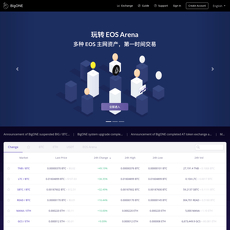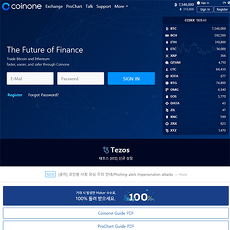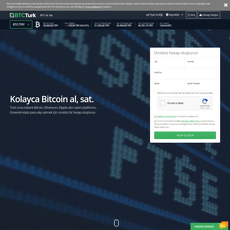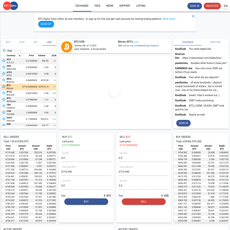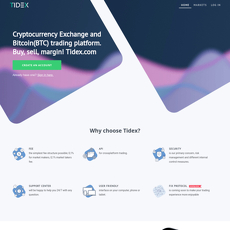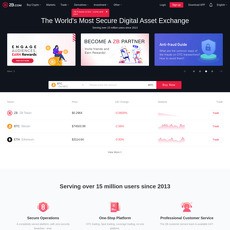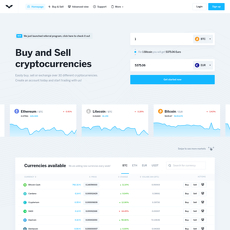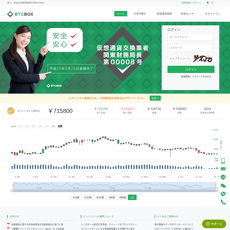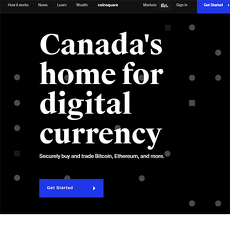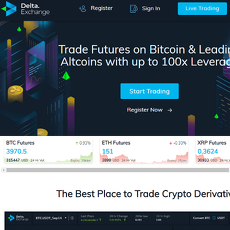Best Cryptocurrency Exchanges (Best Crypto Exchanges) — Ranked & Reviewed (2026)
Best Cryptocurrency Exchanges & Bitcoin Exchanges Ultimate Review Guide with FAQ
Ever wondered which cryptocurrency exchange is truly the perfect fit for you? Whether you're dipping your toes into crypto for the first time or you’re a seasoned trader, the exchange you choose can make or break your experience. From keeping your funds secure to minimizing fees and gaining access to the coins you actually want, picking the right platform is a game-changer.
Choosing the right cryptocurrency exchange is a critical decision that could either set you up for success or leave you frustrated and out of pocket. With so many platforms out there, it's easy to fall into the trap of flashy promises, hidden fees, poor security, or outright scams. Imagine losing your funds overnight because an exchange wasn’t secure or dealing with constant headaches from bad customer support. Nobody wants that. The good news is, finding a trustworthy exchange that fits your needs doesn’t have to be overwhelming. There are platforms out there designed for different types of users, whether you're a newcomer or a pro, and by focusing on the right features—like security, costs, and usability—you can avoid the risks and have a smooth, rewarding crypto journey. Let’s make sure you’re making the best choice.
Why Choosing the Right Crypto Exchange Matters
Let’s be honest, stepping into the crypto world can feel confusing, especially with the sheer number of exchanges out there. How do you know if a platform is legit? What if you end up dealing with surprise fees, poor customer support, or worse—losing funds because the exchange wasn’t secure? The wrong pick could cost you your hard-earned money and leave you frustrated.
Take, for example, some high-profile cases where exchanges were hacked, causing millions of dollars to vanish. No one wants to wake up to that nightmare. But fear not—choosing wisely can help you avoid these risks entirely and give you peace of mind.
What You’ll Learn in This Guide
Here’s the good news: you don’t need to feel overwhelmed anymore. In this guide, I’ll walk you through everything you need to know to make a smart choice. Whether we’re talking about globally popular platforms likeBinance, user-friendly ones like Coinbase, or secure havens like Kraken, I’ve done the homework for you.
We’ll cover:
- Which exchanges are the best for beginners
- How to find platforms with the lowest fees
- What features really matter, like security and customer support
- And so much more!
Still wondering what sets one exchange apart from another? Stick around—we’ll crack open the features you should be looking for next. If you’ve ever been confused about terms like “cold storage” or frustrated by fee structures, get ready for some clarity.
Key Features to Look for in a Cryptocurrency Exchange
Picking the right cryptocurrency exchange is not just about convenience; it can make or break your trading experience. Each exchange comes with its own set of features, but what truly makes one stand out as "the best"? Let’s get straight into the essential features that separate a solid platform from a risky one.
Security First
Let’s start with the big one: security. Look, this isn't just about peace of mind. It's about keeping your hard-earned crypto safe. Imagine logging into your account only to find you're locked out, or worse, your funds are gone. That nightmare has happened to many because they overlooked security features.
So what should you look for? Here are a few non-negotiables:
- Cold Storage: This means the majority of your funds are stored offline, away from hackers.
- Two-Factor Authentication (2FA): A solid layer of protection to ensure you're the only one accessing your account.
- Regulated Licenses: Platforms with proper licenses are more likely to follow strict security protocols.
Take Binance, for instance—it has advanced security mechanisms like multi-tier systems and partnerships with cyber forensics firms. Coinbase? They boast an insurance policy for stored assets. Don’t settle for anything less than these security benchmarks.
"Security isn’t expensive; it’s priceless," they say. When it comes to your investments, there’s no greater truth.
Wide Range of Supported Cryptos
Have you ever felt limited because your exchange just doesn’t support that exciting new altcoin you wanted to trade? It happens all the time. Platforms like Coinbase might only cater to major coins like Bitcoin and Ethereum, while others like Binance open the door to hundreds of altcoins. The range of cryptocurrencies can decide whether your trading stays basic—or evolves into something much more.
For example, Binance offers access to over 350 coins, while Gemini focuses more on major assets, presenting fewer choices. Depending on your interests, be it trading meme coins or investing in niche tokens, your exchange should support your goals.
User Experience
No one wants to work with an exchange that looks like it was built in 2005. Great user experience is key to enjoying trading, whether you're a complete beginner or a pro. How many times have you clicked the wrong button or felt overwhelmed by a cluttered design? When money’s on the line, these frustrations become more than minor annoyances.
Take Coinbase as an example—it’s often praised for its crystal-clear interface, making it incredibly easy for beginners to get started with confidence. On the flip side, platforms like Kraken offer deeper tools for advanced users but don’t sacrifice usability.
The best practical test? Try navigating an exchange’s mobile app or demo platform. Can you find what you’re looking for in under 30 seconds? If not, it’s probably a red flag. When you’re chasing volatile markets, every second counts.
So, Which Features Matter Most to You?
Some people prioritize security above all. Some want an exchange that supports their favorite altcoin. Others just want something that’s simple and frustration-free. What’s your priority? We'll explore exactly which platforms hit these benchmarks in the next section, especially if you’re just starting out...
Best Crypto Exchanges for Beginners
Getting started in cryptocurrency can feel like stepping into a whole new world, right? If you’re a beginner, you probably want something easy to use but still secure and reliable. The last thing you want is to get lost in a maze of complicated options and end up frustrated—or worse, make a costly mistake. So, let’s talk about the best platforms for beginners. These are the ones designed to make your journey smoother without sacrificing safety or key features.
Coinbase
Let’s start with the heavyweight champion for beginners—Coinbase. If you’ve ever Googled “how to buy Bitcoin,” chances are you’ve come across Coinbase as one of the top recommendations. And for good reason.
- Ease of Use: Coinbase’s interface is practically foolproof. Everything is designed in a way that gives you confidence, whether you’re buying your first Bitcoin or checking your balance.
- Secure Transactions: With strong compliance to regulations, insured wallets, and excellent security features, Coinbase sets your mind at ease. No one wants their funds at risk!
- Educational Resources: Coinbase doesn’t just let you trade—it teaches you as you go. Their tutorials and learning programs (like Coinbase Earn) aren’t just helpful; they reward you for getting educated.
However, keep this in the back of your mind: Coinbase does charge higher fees compared to other exchanges. Think of it as paying a bit extra for peace of mind and simplicity when you're just starting out.
Binance
Now, you might think Binance is only for the pros because of its endless features and trading capabilities. But here’s the pleasant surprise—it’s actually beginner-friendly too.
- More Than Just Crypto Trading: Binance offers a “Binance Lite” mode. This simplified version of the platform is ideal for new users who don’t need to deal with advanced trading screens right away.
- Learning Resources Galore: Their Binance Academy is a treasure chest of free courses, guides, and videos that can answer pretty much any beginner question you have.
- Lower Fees: Trading on Binance can cost you far less compared to many other exchanges. They even offer discounts when you use their native token, BNB—a handy little perk for more cost-conscious users!
Sure, it might appear slightly overwhelming when you’re first diving in, but once you explore their beginner tools, you’ll see why Binance remains one of the top choices across all skill levels.
Other Beginner-Friendly Options
Not sold yet? No worries—there are other options worth checking out too. Platforms like Gemini and Bitstamp strike a nice balance between simplicity and features for first-time users.
- Gemini: Known for its intuitive platform and strong focus on security, Gemini is designed for those who value trust above all. Plus, their Gemini Earn program lets you grow your holdings effortlessly.
- Bitstamp: If you prefer a platform with a long-standing reputation, Bitstamp might be your answer. It’s beginner-friendly with some of the best customer support in the space.
So, whether you’re aiming for ease of use, educational material, or trusted support, there’s a platform that fits the bill. Starting your crypto journey doesn’t have to be intimidating when you’re armed with the right tools—and the right exchange.
"Every expert was once a beginner."
Now that you know which platforms make starting out in crypto a breeze, let’s talk about saving money. Because who doesn’t love that, right? Ever wondered which platforms offer the lowest or even zero fees? Let’s check out the options next!
Cryptocurrency Exchanges with Zero or Low Fees
Let’s be real—nobody likes paying extra fees. Whether you’re a seasoned trader or just dipping your toes into crypto, every dollar spent on fees is a dollar less in your portfolio. The good news? Some platforms have figured out how to keep these costs close to zero. Let’s explore the best options for budget-conscious traders.
MEXC: Top Pick for Zero Fees
Imagine trading without the headache of transaction fees. Sounds like a dream, right? Well, MEXC makes that dream a reality. With zero fees on both spot and futures trading, it’s an absolute game-changer for traders who are hyper-focused on saving money.
Here's why MEXC is a standout option:
- Zero fees for spot and futures trading—literally nothing. That’s huge.
- A wide range of tradable assets, including popular altcoins you’d struggle to find elsewhere.
- Perfect for active traders looking to stretch every dollar of their investments.
Pro tip? If you’re someone who trades frequently, this one platform could save you hundreds—or even thousands—in fees over time. Don’t just take my word for it. A 2023 Statista study showed that fee-conscious traders tend to have larger portfolio growth than those paying higher trading costs. Food for thought, isn’t it?
Binance: Low Fees Plus Tons of Features
If there’s a Swiss Army knife of crypto exchanges, it’s Binance. Not only does it offer one of the lowest fee structures in the industry, but it also packs a ton of advanced features you can’t ignore.
Here’s what makes Binance a no-brainer:
- Trading fees start at a rock-bottom 0.10%, and can drop further when you use BNB (Binance Coin) to pay for fees.
- High liquidity ensures minimal price slippage—a huge win for traders making moves with larger amounts of money.
- An option for zero fees on specific Bitcoin trading pairs during promotional periods (keep an eye out for these!).
But let’s not stop there. Binance is also packed with features like staking, P2P (peer-to-peer) trading, and futures markets. Whether you’re just exploring crypto or going all-in, this platform meets you where you are. After all, why shouldn't saving money on fees also come with access to some seriously cool tools?
Other Zero-Fee Platforms Worth Considering
While MEXC and Binance steal the spotlight, they’re not the only players in the zero-fee arena. Here are a few other contenders you should have on your radar:
- Lykke: Known for its commission-free trading, Lykke aims to simplify crypto trading and make it accessible to everyone.
- Phemex: Zero-fee membership plans are a major drawcard here, making it perfect for traders on a budget.
- Deribit: Primarily focused on derivatives trading, Deribit occasionally offers promo periods with zero fees, catering to active traders.
Each of these platforms has carved its niche in the marketplace, proving you don’t need deep pockets to trade crypto smartly. Remember, every penny saved on fees is a penny you can reinvest—or hey, treat yourself. No judgment here!
"It’s not about how much you make, but how much you keep." – Robert Kiyosaki
So, you’re saving money and trading smarter—what’s next? While fees are critical, they’re just one piece of the puzzle. Ever wonder which platforms are truly safe and trustworthy for protecting your hard-earned crypto? Stick around, and let’s tackle that together next.
The Most Secure and Trusted Crypto Exchanges
When it comes to cryptocurrency exchanges, security is absolutely everything. After all, you wouldn’t leave your wallet on a park bench, right? Choosing a platform that's trustworthy and secure is like finding a solid vault for your assets. Trust is what keeps your funds safe and your mind at ease.
Why Trust Matters in Crypto
Let’s be real—there’s no shortage of horror stories where people lose their funds in exchange hacks or from shady platforms operating without regulations. Security is the backbone of trust. Without it, even a platform with the lowest fees or best user experience falls flat.
But how can you tell if an exchange is trustworthy? Look for:
- Regulatory compliance: Exchanges that are licensed and regulated in their jurisdictions signal accountability.
- Strong security measures: Features like cold storage, encryption, two-factor authentication (2FA), withdrawal whitelists, and anti-phishing measures are vital.
- Transparent history: A platform with a strong track record and no major security breaches is always a better choice.
“The trust of the innocent is the liar’s most useful tool.” – Stephen King. In crypto, though, it’s the hackers who take advantage of misplaced trust. Always research before trusting any platform with your assets.
Binance: A Reliable Leader
Let’s talk about Binance, one of the most recognized names in crypto. With over 150 million registered users, Binance is the kind of platform that didn’t just rise to the top—it stayed there. Why? Because security isn’t an afterthought for this exchange.
- Advanced security features: Binance offers 2FA, address whitelisting, and sophisticated encryption to protect users’ data and funds.
- Secure Asset Fund for Users (SAFU): This is a reserve fund set aside to compensate users in the rare event of a breach. It’s like Binance saying, “We’ve got your back.”
- Proven track record: Despite a security breach in 2019 (which was quickly and transparently resolved), Binance doubled down on security measures and emerged stronger than ever.
It’s no wonder Binance continues to be a trusted name for millions globally. If you're thinking about using this platform, rest assured it’s one of the safest spaces in the crypto world.
Kraken and Coinbase: The Titans of Security
While Binance leads in global usage, Kraken and Coinbase are in a security league of their own, particularly when it comes to compliance and operational transparency.
Kraken
Kraken has built its reputation as one of the most secure cryptocurrency platforms, period. What sets Kraken apart?
- Regulatory compliance: Kraken operates in multiple jurisdictions with proper licenses, proving its trustworthiness.
- Cold storage dominance: 95% of funds are stored offline, reducing exposure to hacks.
- Global threat monitoring: Kraken security teams are constantly scanning for threats, ensuring proactive protection.
For those who value privacy and security above all else, Kraken is simply unmatched.
Coinbase
Coinbase, on the other hand, doubles down on user-friendly features while being equally meticulous about security. It’s especially popular among U.S. users because of its compliance with strict regulatory requirements.
- FDIC insurance (for U.S. customers): Funds in USD wallets enjoy federal protection up to $250,000.
- A robust security architecture: 98% of funds are kept in offline cold storage, while their servers utilize bank-grade encryption.
- Regular audits and transparency: Coinbase frequently undergoes independent audits to maintain its status as a trusted platform.
For beginners and advanced traders alike, Coinbase stands out as a name you can rely on.
Which Exchange Will Keep Your Bitcoin Safe?
Choosing a secure platform is crucial, but so is knowing where to store your Bitcoin after buying it. If you're wondering about the best exchanges to buy and send BTC safely, the next section has exactly what you’re looking for. Did you know that some exchanges offer dedicated tools for super-fast and secure Bitcoin transfers? Stick around to learn the smartest way to handle your Bitcoin transactions.
Exchanges for Buying and Sending Bitcoin
Ever found yourself asking, "Which platform should I use to buy or send Bitcoin without stressing over fees or complicated steps?" You’re not alone. Choosing the right exchange for BTC transactions can make your life much easier. Let’s look at some solid choices that keep things simple, safe, and efficient.
Coinbase: Simple and Reliable
If there’s one thing that stands out about Coinbase, it’s how ridiculously straightforward it is. Whether you’re making your first Bitcoin purchase or transferring it to your wallet, Coinbase is built to make the process easy. The clean interface and step-by-step process remove all guesswork. Plus, it’s trusted by millions worldwide, which speaks volumes about its credibility.
Here’s what you can expect with Coinbase:
- Ease of use: Perfect for both beginners and experienced users.
- Fast transactions: Buying and sending Bitcoin takes just a few clicks.
- High security: They offer insurance for digital assets, which gives you peace of mind.
Some stats? Coinbase has over 100 million verified users. That’s like the population of a small country trusting a single platform. If that’s not reliability, I don’t know what is.
Kraken and Bitstamp: Competitive Rates with Great Features
If you’re someone who cares about costs a bit more, both Kraken and Bitstamp are interesting alternatives. They offer excellent rates on Bitcoin purchases and transfers while maintaining solid functionality. Kraken, in particular, is known for having one of the industry’s most advanced security setups. Meanwhile, Bitstamp has earned a loyal following for its simplicity and transparency.
- Kraken: Want to transfer Bitcoin without biting your nails over security? They’ve got you covered with outstanding encryption measures and funding options.
- Bitstamp: You can buy Bitcoin at competitive rates and send it quickly. Plus, its long tenure in the industry means they’ve perfected their system.
Both platforms cater to people who are serious about cost efficiency and protection while keeping processes straightforward.
Binance: A One-Stop Solution
Are you looking for a bit of everything? Binance continues to shine as one of the best choices for both buying and sending Bitcoin. Its unmatched liquidity makes purchases quick and seamless—no waiting around for your transaction to go through. Sending Bitcoin is also hassle-free, and the fees remain among the lowest in the game.
- Multi-use platform: From trading to transferring Bitcoin, Binance can do it all.
- Low fees: Keeping more of your money to yourself never hurt anyone, right?
- Global availability: With its reach across many regions, Binance makes sure you’re covered no matter where you are.
Using Binance feels like handing over a task to a very competent assistant—you know it’s going to get done, and it’s going to get done well.
"Time is money, and with the right platform, you save both."
Still wondering what separates these platforms from the others? Or maybe you're questioning which platform aligns most with your specific situation? Stick around, because the next part will lay out the pros and cons of these exchanges in detail. Ready to weigh your options? Let’s head there!
Pros and Cons of Popular Crypto Exchanges
Choosing the right crypto exchange isn’t just a decision; it’s a game-changer for your entire trading experience. Each platform comes with its own set of perks and pitfalls, and it’s crucial to weigh them carefully. Let’s break it down, platform by platform.
Binance
Binance is like the Swiss Army knife of cryptocurrency exchanges—packed with features for beginners and pros alike. But is it perfect? Let’s see.
- Strengths: Binance excels with super low transaction fees (as low as 0.10%), unparalleled market liquidity, and an arsenal of advanced trading tools. If you love versatility, Binance doesn’t disappoint. For example, you can trade everything from Bitcoin to NFTs on a single platform. Plus, it’s ranked among the largest exchanges in user base and daily volume, ensuring reliability.
- Weaknesses: The problem? It can feel like learning to fly a spaceship when you're new. The sheer number of features and tabs could overwhelm beginners. Their interface, while powerful, isn’t always intuitively easy to navigate.
As one user on Reddit perfectly put it:
"Binance is like a buffet—you love it once you know where to start, but at first, it’s just too many dishes."
Coinbase
If Binance feels like a spaceship, Coinbase is the cozy neighborhood bakery. Designed with simplicity in mind, it’s many people’s first step into the cryptocurrency world. Let’s weigh it up.
- Strengths: Coinbase is ridiculously easy to use. With just a few clicks, you can buy Bitcoin, Ethereum, or any number of coins. For beginners, its guided tutorials and seamless interface are a breath of fresh air. Did you know Coinbase even offers small crypto payouts for completing their learning modules? It’s like earning while learning!
- Weaknesses: Simplicity comes at a price—literally. Coinbase’s fees are significantly higher, especially compared to Binance. Expect to pay up to 1.49% per transaction if you're using bank transfers. Frequent traders might feel this pinch more than casual users.
Still, if you value ease of use and trust, you might overlook the fees. After all, good customer experience is worth paying for sometimes. But could there be other platforms that match its ease without the hefty costs? Stay tuned.
Other Contenders
The crypto world doesn’t end with Binance or Coinbase. Let’s check out some other platforms worth your attention.
- Kraken: This one’s a rockstar for security. With top-notch encryption and compliance, Kraken is often regarded as one of the safest crypto exchanges globally. However, its user interface trails behind compared to the likes of Coinbase.
- Gemini: A favorite for those looking for strong regulatory backing and straightforward tools. It’s another beginner-friendly option, but the fee structure might make budget-conscious traders rethink.
- Bitstamp: Trusted since 2011, Bitstamp is ideal if you prefer simplicity without sacrificing too much on features. Fewer cryptocurrencies are listed here, though, so it’s not for someone looking to trade exotic altcoins.
“With great features come great decisions.” Okay, that’s my twist on a famous quote, but you get the point. Which platform aligns with your priorities—low fees, user-friendliness, or rock-solid security? Still undecided? Don’t worry, you’re about to learn the real secret to choosing an exchange that fits you perfectly. Ready?
Tips for Choosing the Right Exchange for YOU
If there’s one thing I’ve learned in the rollercoaster world of crypto, it's that no exchange can tick every box for every person. Your perfect platform depends on you: your goals, preferences, and situation. Here’s how to figure out which exchange matches your style and saves you headaches.
Determine Your Goals
Are you planning to actively trade every day, or are you looking to build a long-term crypto portfolio? Maybe you're just buying one coin and calling it a day. For example, if you're a trader looking for frequent moves, platforms with lightning-fast execution, like Binance, will suit you. But if your focus is on long-term assets, Coinbase’s beginner-friendly setup might feel like home.
Still unsure? Think of it this way: If you need advanced tools and strategy options, some exchanges offer deep liquidity and features like futures or staking. But if your priority is simplicity, there’s no need for complexity—plenty of user-friendly options exist for your peace of mind.
Factor in Fees
Let’s face it—fees are annoying, but unavoidable. What you need to avoid is being blindsided by costs that slowly eat into your profits.
- Trading fees: These might look small—maybe 0.1% or 0.5%—but they can add up if you’re a frequent trader. Exchanges like Binance or MEXC are ideal for their low-fee structures, ensuring you get more out of every trade.
- Deposit and withdrawal fees: If you're moving fiat currency, fees can be sneaky. Take note of platforms like Coinbase that offer clear, upfront details about these charges.
- Hidden fees: Watch for spreads or conversion rates, especially if you're trading less popular cryptos on exchanges with limited liquidity.
Think of fees like buying a cup of coffee from different places. Some will charge extra for milk, others for sugar—and some already have it included. Don’t pay for sugar twice!
Look at Supported Countries
This one’s critical—imagine signing up for an exchange, only to realize later it doesn’t work in your region. Talk about frustration!
For example, Binance operates in over 100 countries but has limited features in places like the United States. On the flip side, platforms like Kraken or Coinbase cater specifically to U.S. residents while being regulatory compliant. Always check the fine print—or even better, use crypto communities or forums to see if locals are happy with specific exchanges.
You don’t want to end up locked out of your funds just because the platform isn’t licensed in your area. Trust me, it's happened to people before!
One Last Thought to Leave You Wondering...
Aren’t we just scratching the surface here? What if two exchanges seem like perfect candidates, but one has a sneaky advantage hiding in plain sight? Or maybe you’re still wondering where the "most secure and trusted" choice fits into your decision. Let’s figure it all out in the final section. It could make all the difference.
Wrapping Up: Choosing the Right Crypto Exchange
Alright, we’ve covered a ton of ground. Hopefully, by now, you have a much clearer picture of how to choose the best crypto exchange for you. But I know how overwhelming it can be when faced with so many options. So, let’s break things down one last time to keep it simple and actionable.
Recap of Top Picks
If you’re not sure where to begin, here’s a quick summary of the top platforms based on specific needs:
- Best for beginners:Coinbase. The simplest, most user-friendly platform for new crypto investors.
- Best for low fees:Binance or MEXC. These exchanges let you save on trading and withdrawal costs without compromising quality.
- Most secure:Kraken. Its reputation for top-notch security speaks for itself.
Your Next Steps
Now it’s up to you. When choosing an exchange, think about your specific goals:
- Do you want a platform that makes buying crypto super simple?
- Are you aiming to save on transaction or trading fees?
- Is security your biggest priority because you plan to store larger amounts?
Take your time to weigh these considerations carefully. If one exchange stood out to you in this guide, visit their website and explore their interface or beginner resources. Many platforms also offer demo accounts, which can be a great way to test the waters without committing any funds.
And don’t just go with the first suggestion or the most popular name. The “best” crypto exchange for someone else might not be the best for you. For instance, if you love having lots of cryptocurrency options to trade, platforms like Binance could be your match. But if simplicity and reliability are all you care about, Coinbase might be perfect. It’s all about what works for you.
Final Thoughts
Here’s the truth: picking the right exchange is one of the most important decisions a crypto investor or trader can make. It’s not just about the user interface or fees—this choice affects your security, the coins you can access, and your overall experience. Making the wrong decision could cost you time, money, and peace of mind.
That said, don’t feel like you have to commit to one platform forever. As you gain more experience, your needs might change. You might start with Coinbase as a beginner, then move on to Binance for its advanced features or MEXC for its fee-free trading options.
The key is to stay informed, prioritize safety and usability, and always do your own research. If you’ve made it this far into the guide, you’re already on the right track! Now, it’s time to take action, compare the platforms mentioned, and find the one that feels right for you.
Crypto could shape the future of finance, and you're taking a step toward being part of it. Ready to start trading? The next move is yours—go make it count!
Want to dive deeper into crypto news, tips, and reviews? Check out the rest of the articles on our blog here!

